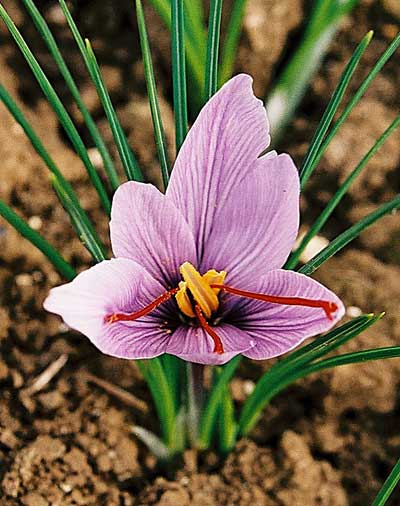تفسير إرشاد
العقل السليم إلى مزايا الكتاب الكريم/ ابو السعود
{ وَأَنبَتَهَا } مجازٌ عن تربـيتها بما يُصلِحها في جميع أحوالها {
نَبَاتًا حَسَنًا }
Al-Alusi:
3:37. Hu
sprouted her (Mary): Metaphor for a farmer irrigating the farm and
supporting it for all its needs and removing the weed that might
suffocate the crops.
تفسير روح المعاني/ الالوسي
{ وَأَنبَتَهَا نَبَاتًا حَسَنًا } أي رباها الرب تربية حسنة في عبادة
وطاعة لربها قاله ابن عباس رضي الله تعالى عنهما، وفي رواية عنه أنه سوى
خلقها فكانت تشب في يوم ما يشب غيرها في عام، وقيل: تعهدها بما يصلحها في
سائر أحوالها، ففي الكلام استعارة تمثيلية أو مجاز مرسل بعلاقة اللزوم فإن
الزارع يتعهد زرعه بسقيه عند الاحتياج وحمايته عن الآفات وقلع ما يخنقه من
النبات.
The
nature—Divine Verbiage—of the genesis of the Mary is botanical!
While men grow their spirituality
from the nourishment of their deeds and intentions, Mary’s germinated,
exclusively, from the nourishment of Allah!
As trees grow in the Paradise from
the man’s Dhikr (Remembrance),
Hur sprouts—extension of man’s own Wujud (Being)—when
voluntarily warded off and prohibited his senses from the unlawful
pleasures and thus Hur grows from the spices and fragrances of the
Paradise as an extension: The perfection of man’s senses
كنز العمال الإصدار 2.01 - للمتقي الهندي
المجلد الأول >> الإكمال
2058 - من قال سبحان الله وبحمده غرس له ألف شجرة في الجنة أصلها من ذهب
وفرعها من درو طلعها كثدي الأبكار ألين من الزبد، وأحلى من الشهد كلما أخذ
منها شيء عاد كما كان.
(ك في التاريخ والديلمي عن أنس).
And again, the
man’s Wujud (
Being)
sprouts another botanical creature, the extension of his Nafs’s (
Self’s)
evil:
56:52. "Ye will surely taste of the Tree of Zaqqum. (Zaqqum a tree
growing midst the flames of Hell, nourishment for the Hell’s
inhabitants)
Contrary to Mary sprouting from the Divine Nourishment, man shall
sprout into the hell feeding fed on his own evil.
And why botanical verbiage?
Safran, Musk and the trees of Dhikr (
Remembrance)
are the code-words for the process of infinity! Finite words or finite
deeds starting from this world, can germinate infinitely into the world
after, either into the perfection of Hur or the damnation of Zaqqum,
both extensions of the man’s own manifold Wujud (
Being),
infinitely perfected or infinitely vitiated.
©
2006-2002, Dara O. Shayda
